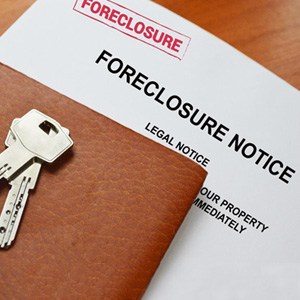 The following article will cover:
The following article will cover:
- The advantages of an individual Chapter 11 bankruptcy filing in Illinois.
- The differences in the treatment of debt and repayment plans between Chapter 11 and other bankruptcy chapters.
- The circumstances under which creditors can challenge or oppose an individual Chapter 11 bankruptcy plan in Illinois.
Once My Lender Begins Foreclosure Proceedings, Will I Have Any Chances Of Selling My Home?
Yes, even if foreclosure proceedings have started, you still have several options. For instance, you can attempt to modify your mortgage through loan mitigation, which requires a comprehensive review of your financials by your lender.
Another option is a deed-in-lieu, wherein you sign the deed over to the bank, avoiding the foreclosure process. This solution is typically suitable for those intending to relocate.
If loan modification doesn’t work, or you want to retain your home, Chapter 13 bankruptcy could be a viable option, assuming your mortgage isn’t so high that Chapter 13 isn’t feasible. If you have a regular income, you can file for Chapter 13 bankruptcy to repay your arrears over a period of 36 to 60 months while also maintaining regular mortgage payments.
The Northern District of Illinois offers a relatively new program where you can modify your mortgage through Chapter 13 bankruptcy. With the assistance of a third-party vendor, you may be able to work out a modification through mediation.
When A Homeowner Is In Danger Of Losing Their Home, Can They Save The Property, Or At Least Come Out Financially Better Off If Forced To Sell?
The best option when at risk of losing your home often depends on individual circumstances. Some people may gather sufficient funds to pay their arrears and resume regular payments. Others may benefit from forbearance agreements, where the lender agrees to temporarily reduce or pause mortgage payments.
Additionally, homeowners can attempt to modify their mortgages to lower their payments, reduce their interest rates, or move their arrears to the end of their loan term. Another possibility is a deed-in-lieu where homeowners sign the deed back to the mortgage company, often receiving a “cash for keys” payment to help with moving costs.
A short sale can be an option if your house is underwater. You can sell your home, and the lender typically forgives any shortfall. If you have equity in your property, you might consider listing it for sale to leverage that equity rather than lose it to foreclosure. Lastly, you can file for Chapter 13 or Chapter 11 bankruptcy to cure your mortgage over five years.
Does The Type Of Loan You Have On Your Home Determine What You Can Do When Facing A Foreclosure?
Yes and no. Regardless of the type of loan, foreclosure laws in Illinois and federal laws must be adhered to. However, the specifics of your loan, particularly the guidelines set by the master servicers like Freddie Mac and Fannie Mae, can determine what options are available to you. These guidelines can affect the possibility of a mortgage modification or a deed-in-lieu. However, they don’t impact your ability to file for Chapter 13 bankruptcy.
For more information on Bankruptcy As A Foreclosure Defense In Illinois, an initial consultation is your next best step. Get the information and legal answers you are seeking by calling (847) 440-5998 today.

Bach Is Your Financial Future.
Contact Us Today! (847) 440-5998

